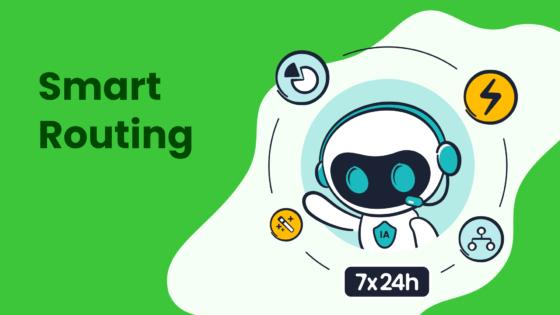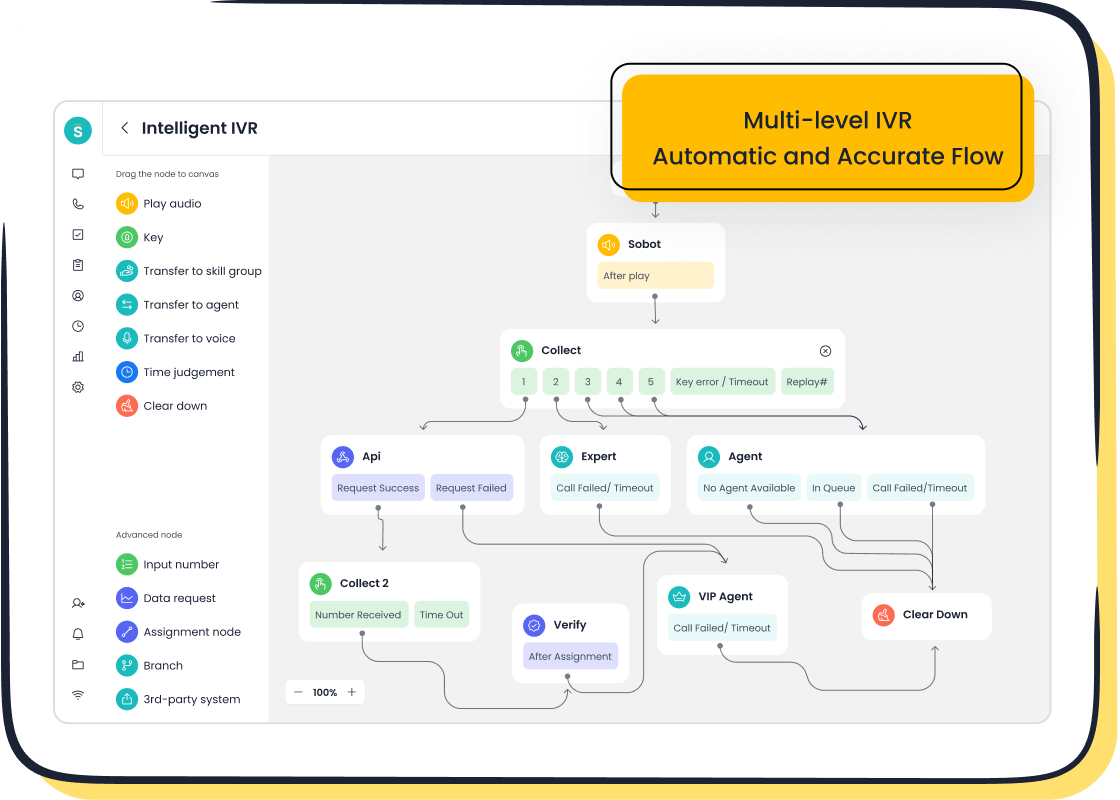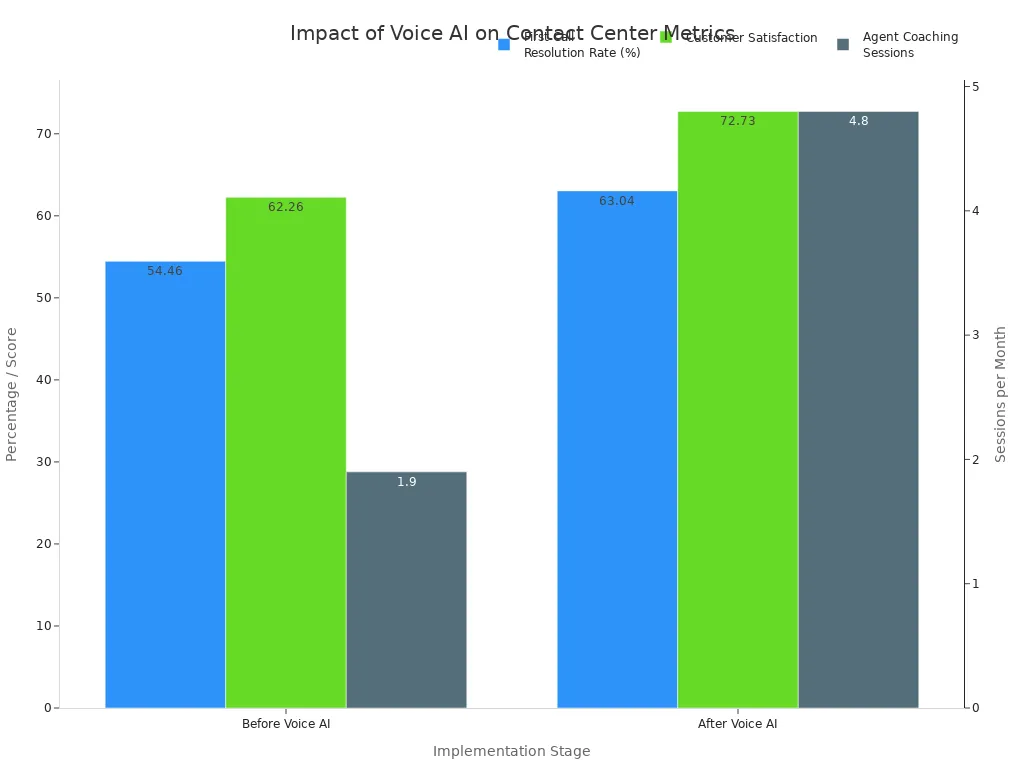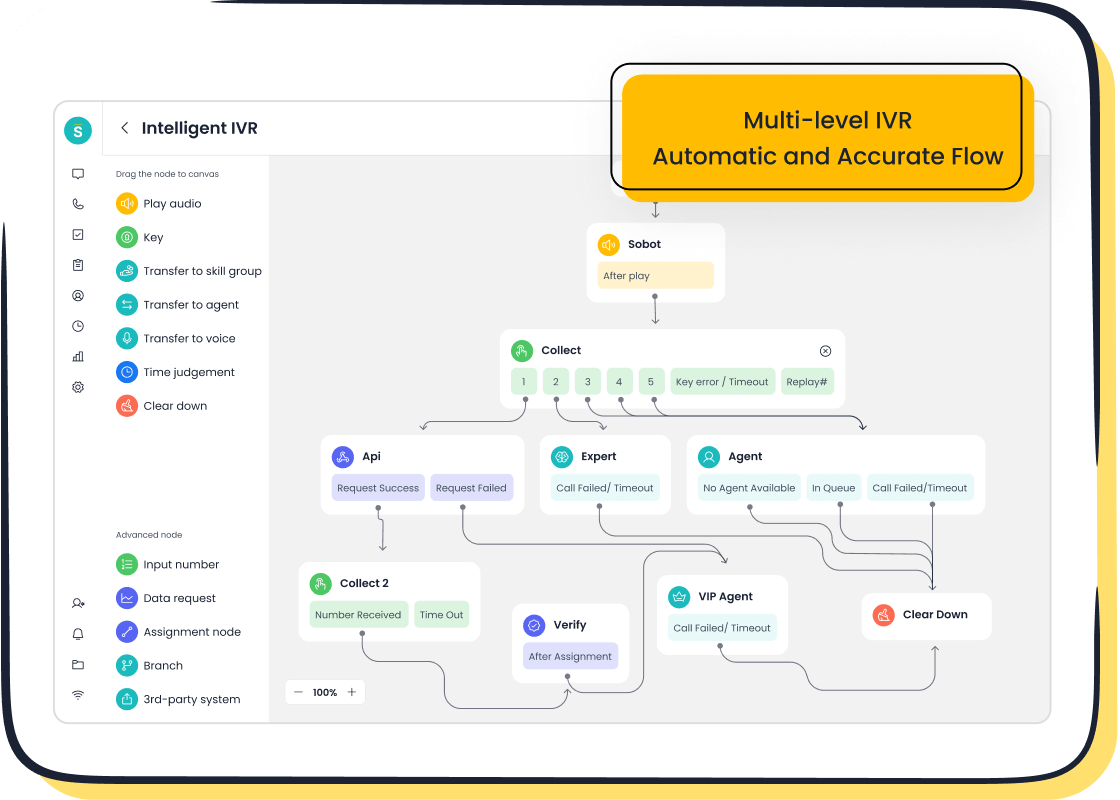Transforming CX with Omnichannel Contact Centers

A true customer experience (CX) transformation requires a strategic shift to an omnichannel cloud contact center. This digital transformation is a direct response to the modern customer; 90% expect a consistent service experience across all touchpoints. This change aligns with Sobot's mission to improve the customer experience. The future of CX is this omnichannel support model. This powerful CX transformation integrates artificial intelligence like Sobot AI and uses the Sobot call center to unify the journey. This omnichannel approach is the future of customer support and excellent CX.
The Shift to an Omnichannel Experience
A successful digital transformation hinges on understanding the fundamental differences between multichannel and omnichannel strategies. While both involve multiple channels, their approach to the customer experience is vastly different. This shift is one of the most important contact center trends for businesses to follow.
Multichannel vs. Omnichannel
A multichannel approach offers customers several ways to connect, but each channel operates in a silo. A customer might use live chat one day and call the next, forcing them to repeat their issue. An omnichannel experience, however, integrates these touchpoints into a single, continuous conversation. This creates a seamless journey for the customer.
The operational differences are clear:
| Feature | Omnichannel | Multichannel |
|---|---|---|
| Integration | Fully integrated systems across all channels | Silos between different channels |
| Context | Complete customer history and journey data | Limited cross-channel customer data |
| Personalization | Hyper-personalized service based on data | Less capacity for personalization |
| Metrics | 360-degree customer relationship metrics | Channel-specific metrics only |
The Impact on Customer Loyalty
A unified omnichannel communication strategy directly boosts customer loyalty and satisfaction. The data is compelling; companies with strong omnichannel engagement retain up to 89% of their customers. This is a significant increase compared to businesses with weak channel integration. Furthermore, a seamless experience leads to higher customer satisfaction. One study showed a 42% increase in CSAT scores after implementing an omnichannel architecture. These customer service trends show that a positive CX is essential for retention. These trends are shaping the future of service.
Understanding the Modern Customer Journey
The modern customer journey is no longer a straight line. Customers now navigate a complex web of digital and traditional touchpoints. They expect a consistent experience whether they are on social media, email, or the phone.
A customer may start an inquiry on a mobile app, follow up via email, and finalize it with a phone call. An omnichannel cloud contact center ensures the agent has the full context at every step of this transformation.
This omnichannel communication is vital for a positive customer experience. Understanding these call center trends allows a business to adapt its CX strategy. This digital transformation meets the customer where they are, providing the exact service they need on their preferred channel.
Key Technologies for the Future of CX

Building a future-proof CX strategy requires the right contact center technology. The ongoing digital transformation is powered by key innovations that unify channels and empower agents. These technologies are not just trends; they are essential components for creating the seamless, personalized experience modern customers demand. Understanding these contact center trends is the first step toward a successful transformation.
Improving the Customer Experience with AI
Artificial intelligence is the engine driving the future of customer support. It automates routine tasks and provides deep insights. This allows human agents to focus on complex, high-value interactions. This is a core part of the inbound contact center evolution.
Sobot uses a powerful suite of artificial intelligence tools to enhance the customer experience.
- ChatGPT-enabled Chatbot: Sobot’s chatbot offers 24/7 self-service for customers. It resolves common inquiries instantly. This technology helps businesses achieve high containment rates. Industry benchmarks show chatbot containment rates can reach 70-90%, freeing up agent time.
- AI-powered Voicebot: The Sobot Voicebot uses advanced intent recognition. It understands a customer's needs and routes them correctly. This contact center technology significantly improves First Call Resolution (FCR). Studies show voice AI can increase FCR rates by 16% and improve customer satisfaction with agents by 17%.
- Generative AI for Agents: Generative artificial intelligence acts as a co-pilot for your customer service team. It analyzes conversations in real-time. It suggests responses and pulls information from knowledge bases. This support reduces Average Handle Time (AHT). For example, predictive AI has been shown to reduce AHT by 20 seconds per call.

This application of artificial intelligence in the inbound contact center makes every interaction smarter and more efficient. It is a key part of the future of CX.
The Role of an Omnichannel Cloud Contact Center

An omnichannel cloud contact center is the foundation of a modern CX strategy. Unlike on-premise systems, a cloud contact center offers unmatched flexibility, scalability, and cost-efficiency. This contact center technology is a key part of the future of the inbound contact center.
| Characteristic | Cloud Contact Centers | On-Premise Contact Centers |
|---|---|---|
| Initial Costs | Lower; subscription-based | High; requires hardware investments |
| Scalability | Easily adjustable as needed | Limited; requires new hardware |
| Accessibility | Accessible from anywhere | Operates from a fixed location |
| Maintenance | Provider handles all updates | Requires an in-house IT team |
Sobot’s cloud contact center provides a stable and powerful platform for businesses. It guarantees 99.99% system stability, ensuring your service is always available. The platform also offers simple integration with essential business tools. A native connection with a CRM like Salesforce unifies customer data. This gives agents a complete view of the customer's history for a truly personalized experience. This integration improves agent efficiency and elevates the customer experience. The inbound contact center benefits greatly from this unified approach.
How Sobot's Platform Unifies Channels
A true omnichannel experience breaks down communication silos. Sobot’s platform achieves this by creating a Unified Workspace for agents. This single interface brings all customer conversations together. An inbound contact center agent can see interactions from voice, chat, email tickets, and social media in one place.
This unified view means a customer can start a conversation on chat and continue it over the phone without repeating themselves. The agent has the full context, creating a seamless and personalized journey.
Sobot is also an official WhatsApp Business Solution Provider (BSP). This allows businesses to leverage the world's most popular messaging app for both customer support and marketing. The statistics are compelling:
- WhatsApp messages have a 98% open rate.
- Marketing messages on WhatsApp can achieve click-through rates between 45% and 60%.
- Using WhatsApp for customer service can reduce operational costs by up to 40%.
By integrating channels like WhatsApp, Sobot helps businesses meet customers where they are. This omnichannel communication strategy is vital for building strong customer relationships and is a key part of modern call center trends. This contact center technology is essential for the inbound contact center.
Turning Data into Actionable Insights
An omnichannel cloud contact center gathers a massive amount of customer data. This data is a goldmine of insights. The challenge is turning that data into intelligent action. A unified platform collects various types of interaction data. This includes website activity, purchase history, channel preferences, and customer feedback.
Sobot’s analytics tools help businesses make sense of this information. The platform provides real-time dashboards and historical reports. This allows managers to monitor key performance indicators for the inbound contact center. These insights lead to smarter business decisions.
Here are examples of actionable insights from contact center analytics:
- Optimize Staffing: Identify peak call times to schedule agents effectively.
- Improve Training: Analyze conversation transcripts to find common customer issues and agent knowledge gaps.
- Boost Sales: Use AI to identify cross-sell or upsell opportunities during service interactions.
- Increase Retention: Proactively identify at-risk customers based on sentiment analysis and interaction history.
Data-driven decision-making transforms an inbound contact center from a cost center into a revenue driver. By leveraging analytics, businesses can refine their CX strategy, improve agent performance, and ultimately increase customer loyalty and profitability. This is one of the most important trends for the future of the inbound contact center. This digital transformation is driven by data.
Strategies for a Successful Transformation
A successful digital transformation requires more than just technology; it demands a clear strategy. Businesses must empower their teams, secure customer data, and learn from real-world successes. These strategies turn an inbound contact center into a hub for exceptional service and a better customer experience. This is one of the most important contact center trends.
Empowering the Hybrid Workforce
The shift to hybrid work models is a permanent digital transformation. Supporting a distributed team requires a robust, cloud-based platform. This technology gives agents the flexibility they need and boosts satisfaction. Research shows that organizations offering flexible work report a 20% increase in productivity.
A unified platform empowers agents with tools for success, regardless of their location.
- Workforce Management: AI-driven forecasting and flexible scheduling optimize staffing for the inbound contact center.
- Real-time Analytics: Supervisors can monitor performance and provide coaching to improve the customer experience.
- Integrated Tools: A single workspace for all channels gives agents the context for a personalized customer interaction.
This approach improves the agent experience, which directly translates to a better CX.
Embedding Security and Compliance
In an omnichannel world, data security is paramount. A single breach can destroy customer trust. An inbound contact center must comply with strict global regulations.
- GDPR (General Data Protection Regulation): Protects data for individuals in the European Union.
- CCPA (California Consumer Privacy Act): Grants privacy rights to consumers in California.
- PCI-DSS (Payment Card Industry Data Security Standard): Secures credit card information.
A secure inbound contact center builds its foundation on trust. Best practices include end-to-end encryption, strict access controls, and regular security audits to protect sensitive customer information.
A Real-World Omnichannel Success Story
Opay, a leading financial service platform, provides a powerful example of a successful transformation. The company struggled to manage high volumes of customer inquiries across social media, email, and voice. This fragmented approach hurt their CX.
Opay implemented Sobot's omnichannel solution to unify its customer support.
- The email ticketing system organized inquiries for faster resolution.
- An intelligent IVR from the Sobot Voice Call Center allowed 60% of customers to find answers through self-service.
The results of this digital transformation were remarkable. Opay achieved a 90% customer satisfaction rate, up from 60%. The company also saw a 20% reduction in costs and a 17% increase in conversion rates. This case study proves that a unified, personalized customer support strategy drives real business growth and an excellent experience. The inbound contact center became a source of value.
This transformation is a fundamental business strategy. An omnichannel cloud contact center is the future of exceptional CX. The future of customer service is proactive and personalized. Businesses can drive revenue and loyalty by unifying channels, leveraging AI, and empowering agents. This approach turns a contact center into a profit center. The future of your CX depends on these strategic shifts.
Ready to turn your contact center into a loyalty driver? Embark on Your Contact Journey with Sobot and discover how our solutions can redefine your CX. Visit sobot.io to learn more.
FAQ
What is an omnichannel cloud contact center?
An omnichannel cloud contact center unifies all customer communication channels. It creates a single, continuous conversation for each customer. This approach provides a seamless customer experience across voice, chat, email, and social media, eliminating the need for customers to repeat information.
How does AI improve the customer experience?
Artificial intelligence enhances the customer experience by providing immediate support. Sobot's AI-powered chatbots and voicebots offer 24/7 self-service for common questions. This frees human agents to handle more complex issues, leading to faster resolutions and higher satisfaction.
Can an omnichannel platform integrate with existing tools?
Yes, a key feature is simple integration. Sobot's platform connects easily with essential business systems like a Salesforce CRM. This integration provides agents with a complete customer history, enabling a more personalized and efficient service experience.
How does Sobot ensure its service is reliable?
Sobot guarantees high reliability for its omnichannel cloud contact center. The platform provides 99.99% system stability. This ensures that a business's customer service operations are always available, building trust and delivering a consistent customer experience.
See Also
A Comprehensive Guide: Implementing Omnichannel Contact Center Solutions Effectively
Your Essential Guide to Selecting Omnichannel Call Center Software
Exploring the Best Contact Center Solutions: A 2024 Review
How AI Customer Service Agents Are Revolutionizing Support Experiences
